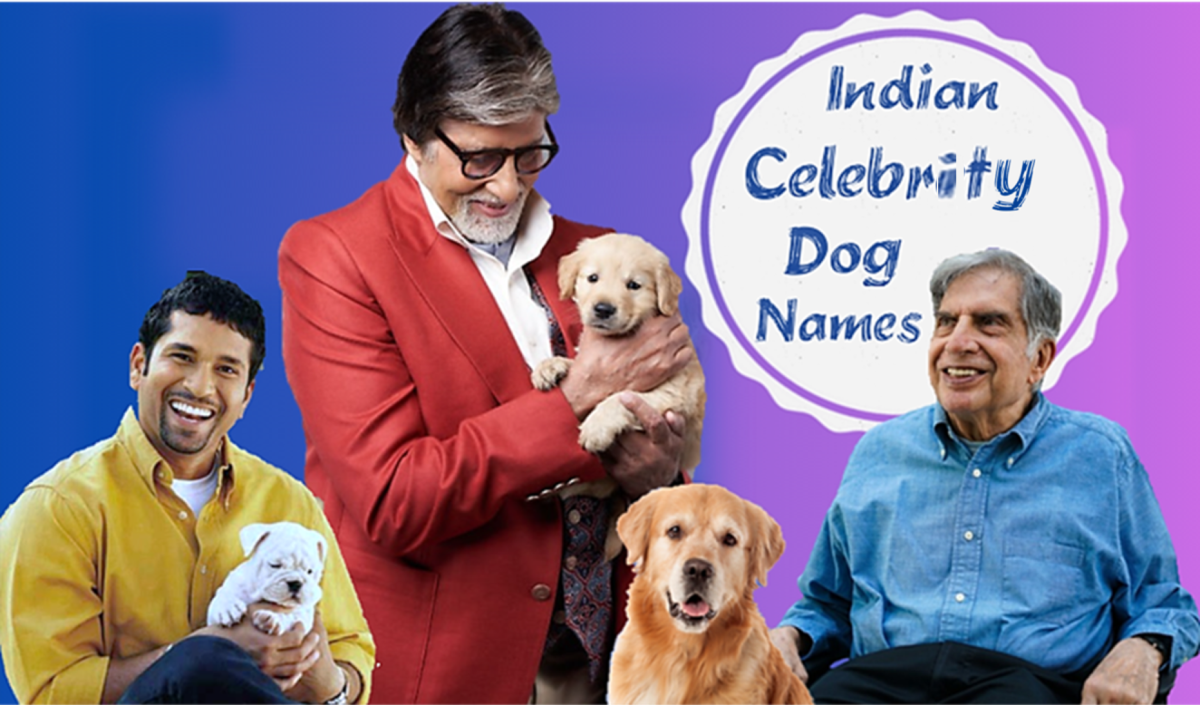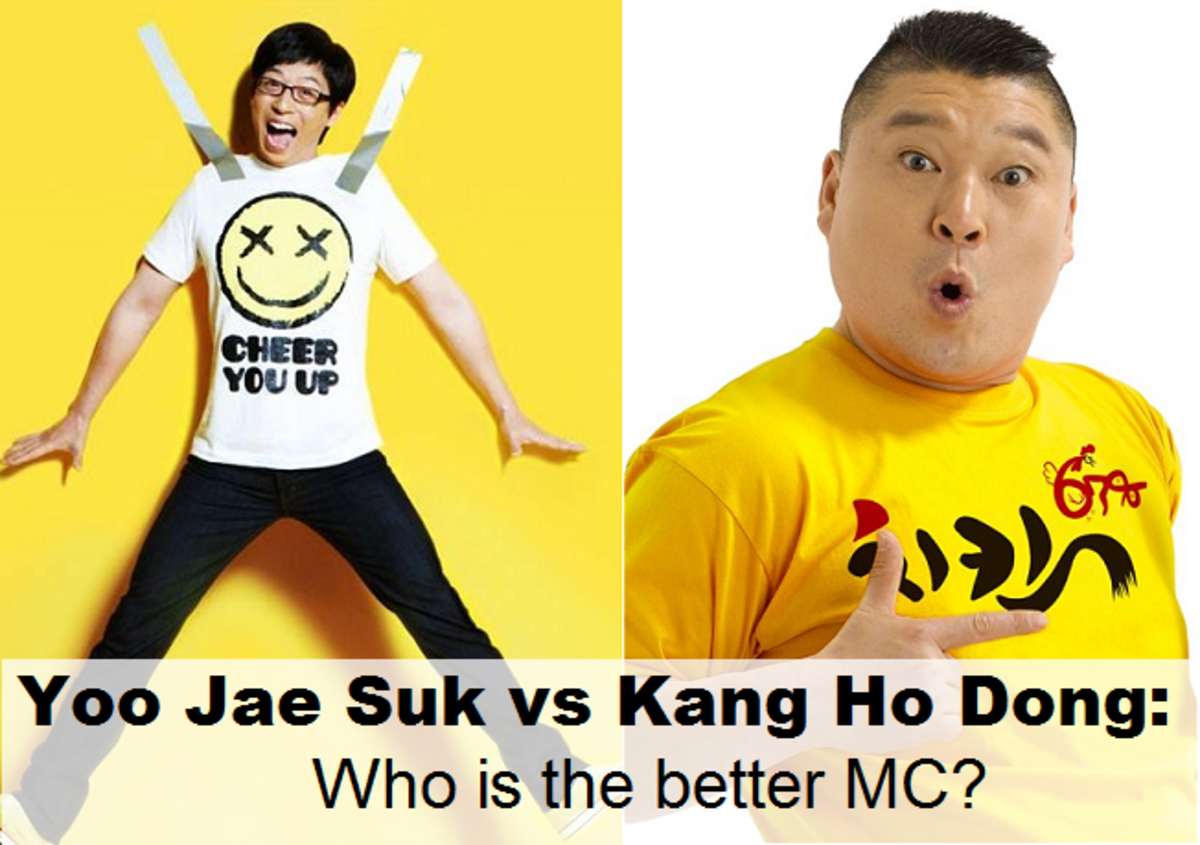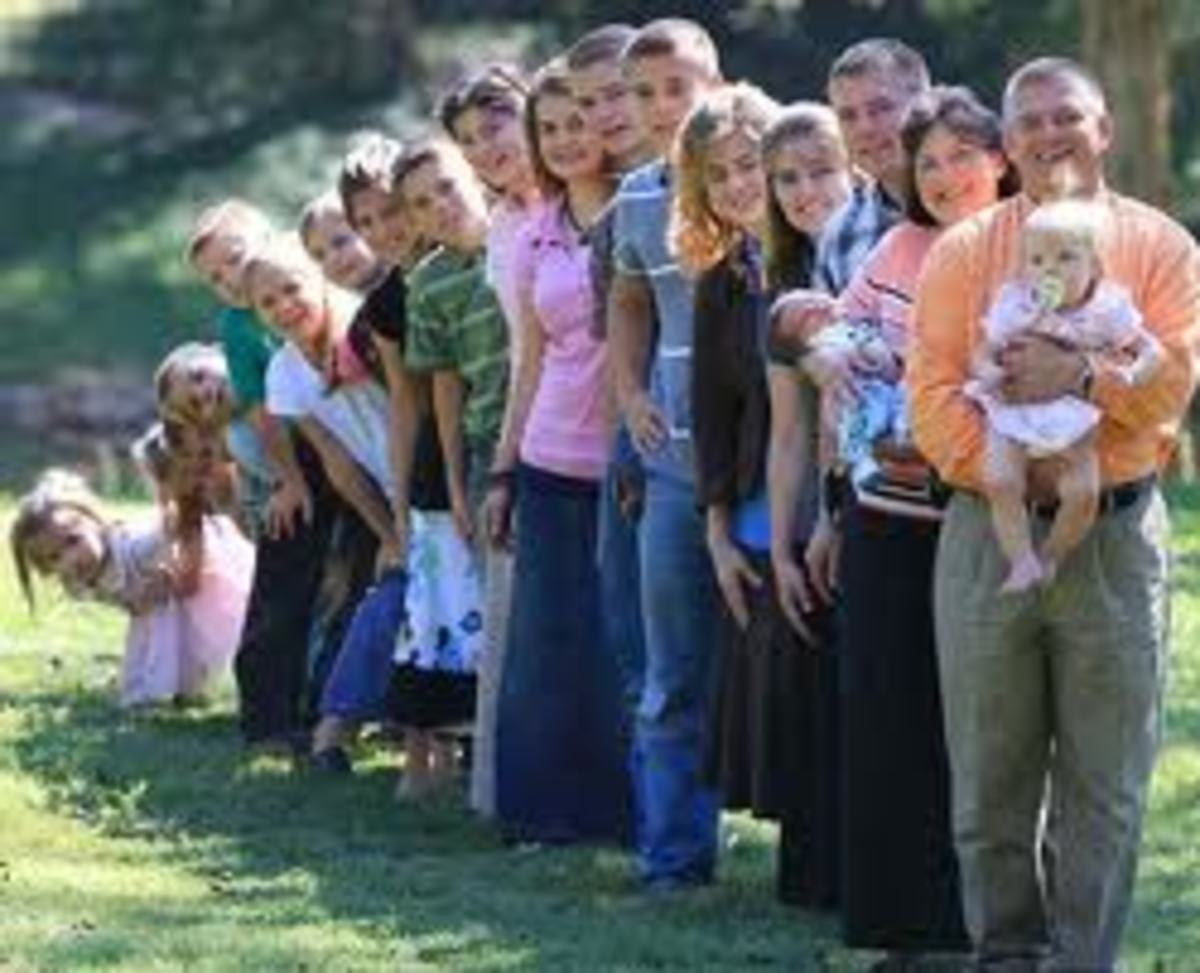SOMEBODIES and......... The Rest of Us
Aren't We ALL Equal? Nope, Pecking Orders DO Exist







We All Are Created Equal.....or ARE We? Nope, There is a PECKING Order
All of us were inculcated that we all are equal. We were further instructed that no one, regardless of class, intelligence, race, creed, and/or socioeconomic class is better than another person. We were routinely instructed that to think such was wrong, if not immoral.
Not only our parents endlessly told us this, our teachers and other adult figures strongly asserted this philosophy. Our religious leaders regularly exhorted the philosophy that God or a Universal Force is no respecter of person, all are equal in His/Her eyes. In fact, this philosophy is even stated in our Constitution, " we hold these truths to be self-evident that ALL men are created equal with certain unalienable rights.".
Americans are quite fond of believing the premise that we all are equal. The American archetype has always been the Average Joe/Josephina and the everyperson who embodies the we all are equal characteristics and/or persona. The Average Joe/Josephina character is non-threatening and welcoming to all regardless of class, color, gender, and/or other constructs.
The Average Joe/Josephina is and personifies the common equality of everyperson. He/she is also accessible and/or reachable to many, if not, all. He/she is the first one who states that no one is ever better than anyone, no matter what that person believes and to believe such, is elitist and anti-American to say the least. Until very recently, our most beloved characters in movies and television were the everyperson.
Although we were told that we are equal, in reality, the matter is different entirely. There have been premises in societies from ancient to postmodern, that some of us are.....well, better than others. One of the main institutions that practice this is the family. The familial relationship is hierarchical in nature. In many families, the husband and/or the father is considered to be the head of the household and then there is the wife and/or mother.
In addition to the husband/father and/or wife/mother, there is the hierarchy of siblings with the oldest having the being on the top while the youngest is at the bottom. Within the sibling hierarchy, there is favoritism which a child/children receive more preferential treatment by the parents. Besides that there is sibling favoritism where one sibling is liked more than another.
The family is not the only institution where there is hierarchical and oftentimes unequal, even preferential treatment. In schools, teachers also treat students based upon grades and sometimes teacher's likes and/or dislikes. There are children who are teachers' pets while there are others who are teachers' outcasts. Then, there is a pecking order among students. Those at the top of the pecking order for whatever reason are the most respected and/or emulated while those at the bottom are oftentimes despised, even ostracized.
Beyond school, the outer society has its pecking order. This pecking order is divided between which is considered the respective ingroup and outgroup. Each society has its own unique ingroup and outgroup. The general society has its consensus as to what is the ingroup and outgroup. The ingroup is considered to be the somebodies while those not in the ingroup are considered to be the lesser.
IN, Out, & In-Between Groups-Yes, Society Can Resemble High School







Adult Society is High School MAGNIFIED, NO DOUBT About It
Adult society is in many cases like high school believe it or not. There are those at the top, those at the middle, and those at the bottom. As in high school, those at the top are often idolized and respected. People want to emulate such people. Those a the top are the ones who people imitate and want to follow. They are the ones whom some people are obsessed with, even deify.
People at the top of the respective societal pecking order beyond the rules that applies to the rest of society. They make their own rules. In fact, they create rules for other people to follow although such rules may not even apply to them. There are those at the top who maintain that rules are for the common people, not ever for them. There are some who even believe that they can get away with murder if they wanted to. It is their contention that they are way too powerful, rich, and/or famous to be even brought to task for their misdeeds.
Of course, there are people at the middle. This is the majority of people in society. They are what one may call Average Joes/Josephinas, the common person, and/or the working person. They go about working, paying their taxes, and following the societal rules. They are following someone's else life script and rules. They really do not own their lives at all. They exist at the behest of the powers that be whether it is corporations or some other entity. These are the people who believe to prescribe to their particular societal construct.
Many of these people are afraid of break the rules. If they do, their life as they know may be destroyed beyond the point of ruin. These are the people who believe that life is full of rules and regulations which must be followed in order for one to be fully efficient and successful. These are the people who believe that without stringent rules and/or constructs, society as they know it would be totally chaotic, even anarchic. They see life as quite a serious business, filled with responsibilities and obligations. To them, one cannot do what he/she wants to do. They insist that it is much easier to obey and follow, after all, individual people really cannot change things one iota as according to them, they are unimportant in the eyes of society.
Then there are those at the bottom. These people are the poor, working or on some type of assistance. These people are truly powerless. They are truly the invisible among others. They are the ones who are more likely to be exploited. They are at llfe's periphery. These people are usually a half to one paycheck away from homelessness. They also receive the poorest of services whether it is education and/or health care. They are the people who have the lowest skill and/or education levels. Many of the jobs they perform require the simplest skill-sets. Their jobs are being outsourced, computerized, and/or completely eliminated, making many of them permanently unemployed.
These people are society's permanent underclass. Some even fall through the socioeconomic cracks, becoming homeless. Homeless people are the bottom of the bottom. Many are considered to be personae non gratae by the rest of the population. They are victims of life. Many feel that life happen to them. They are the ones who are criminalized although they are innocent. They are society's untermenschen. Many people believe that whatever treatment they receive and whatever situation they are in, the latter caused it by their moral ineptitude. They are considered to be abject failures to be avoided at all costs. They are societal outcasts and/or untouchables.
The A Group of A Groups, Hollywood Celebrities










Hollywood, The Ultimate "A" Group
Celebrities in Hollywood are considered to be society's ultimate A group. They are often seen as the most elite of the elite. They are even beyond the ingroup. They exist in a rarefied atmosphere that is not in the purview of most people. They have privileges and perks that the majority of people do not and will never have.
Celebrity has its myriad privileges. Celebrities get the best table at restaurants. They have access to sales that are not open to the public. They have the first dibs to designer clothing. They even get freebies. They can even attend events and/or other premieres before they are open to the general public. At the snap of their fingers, celebrities have private events for themselves and their friends and/or relatives i.e. Janet Jackson had Sylvia Restaurant closed to the public to have a private event with her friends. Al Pacino also had a restaurant closed to celebrate a romantic moment with a significant other. They CAN do what others simply CANNOT.
Many people see celebrities as royalty. They live the lives that many people wish they could lead. To them, celebrities are seen to be beyond mortal people. They are glamorous and exciting. They are not the humdrum average person. There are those who live through their celebrity idols. Of course, such is the case as evidenced by the incessant plethora of gossip newspapers and magazines such as The National Enquirer, Star, People, Us Weekly, InStyle, Globe, and other celebrity magazines.
The internet has such celebrity-related media such as Perez Hilton and TMZ. Celebrity newspapers and magazines do quite a booming business. People seem to be more interested in the lives of celebrities than they are in important and noteworthy current and world events. There are people who put the lives of celebrities over that of their families. There are people who believe that celebrities are everything and more.
Celebrities, especially more so in this postmodern era, have tremendous clout. Advertisers use celebrities in order to get most people to purchase their product. People furthermore more likely to purchase a product if a celebrity endorses it than a non-celebrity, even if that non-celebrity is educated regarding the product. Celebrity sells and sells mightily. Celebrity adds authenticity to a product. Many people believe celebrities because as stars, they perhaps know what they are doing and/or saying. There are people who believe that celebrities are smarter than the rest of humanity; after all, they must be smart to reach the pinnacles of success that they have.
Many people believe that what celebrities say is true because of their elevated status. Some actually hang on to a particular celebrity's every word. For example, many people voted for Barack Obama because of an endorsement made by Oprah Winfrey, a highly respected media mogul. She sang the praises of Barack Obama, seeing him as a breath of fresh air. Of course, Ms. Winfrey has a mass following and they believed that she was telling the truth so they voted for him based on her endorsement. Celebrities have the clout to sway people to their particular way of thinking and belief.
To some people, celebrities are beyond royalty. They contend that celebrities are even beyond being mere humans- they are gods and/or goddesses incarnate. In Old Hollywood, many people. considered celebrities to be their idols as they were considered as the idea of human perfection. They believe that celebrities are totally untouchable albeit in a positive way. These are the people who strongly contend that celebrities have no human foibles or flaws. They assert that celebrities are perfect physically, emotionally, mentally, and/or psychologically. If others beg to differ, it is explained that celebrities are stars because the latter are perfect in the eyes of society or at least in their eyes.
Of course, celebrities are deemed to be "perfect." They have makeup artists, fashion consultants, elocution experts, and other people whose job to create that perfect, polished image. Off the camera, many celebrities look as average as the next person on the street. There is a lot of time and money crafted to create the celebrity image that many people are in awe of.
Celebrities are highly valued in this society. They possess a high level of skill-sets. They possess talents, some even possess phenomenal or prodigious talents whether it is acting, dancing, singing, directing, and/or producing. Many celebrities have triple and/or quadruple talents. Such talents demand high monetary compensation. Celebrity life may seem easy to the public but they usually work arduous hours and endure intense schedules. In addition to their regular jobs, they often have to promote their products via talk shows, radio shows, and/or other media. As part of their support to other colleagues, they oftentimes have to attend movies, plays, and/or other events.
Celebrities are also highly valued and elevated in this society because the public sees celebrities as the ideal and unattainable. Because of this elevated status, celebrity lives are considered to be worth more. When anything happens to celebrities, it is reported in newspapers, news shows, and/or magazines. If they die, many receive the accordance of royalty. They are considered that important.
Celebrities are oftentimes considered to be the American elite or better. Since celebrities are important in this society, their every move is followed to the most minuscule detail. When they die, concern is expressed in ways that are not expressed for people deemed less important. To many people, when a celebrity dies, it is as if their god/goddess has died and their world as they know it, is gone. Many celebrities are even more deified after their deaths. For example, many fans still visit Graceland to honor the late Elvis Presley. The late Marilyn Monroe is imitated and worshipped to this day. Even a soldier who has died for this country is not accorded the respect that a dead celebrity is accorded because he/she is considered to be the common person.


Conclusion
Despite being inculcated that we all are equal, such is not necessary the case. Our society has a pecking order in which some people are considered more important than others. Within the top pecking order, Hollywood celebrities are oftentimes considered to be the creme de la creme. They are accorded the very best of treatment whether it is reserved tables at restaurants, exclusive sales, and/or being used for product and/or political endorsements. They live in a world which are not available to most people.
Celebrities have a high skill-set which accords commensurate pay. Their lives are also valued more than the average person's life. That explains why there is constant interest in the lives of celebrities. People love to read about glamorous lives unlike their monochromatic grey lives. Even when celebrities die, they are highly honored and accorded the respect which is not granted to non-celebrities. Some celebrities are immortalized and are worth more in death than they were when alive. Yes, there are somebodies and then the rest of us. There is no more of a somebody than being a celebrity.
© 2013 Grace Marguerite Williams








